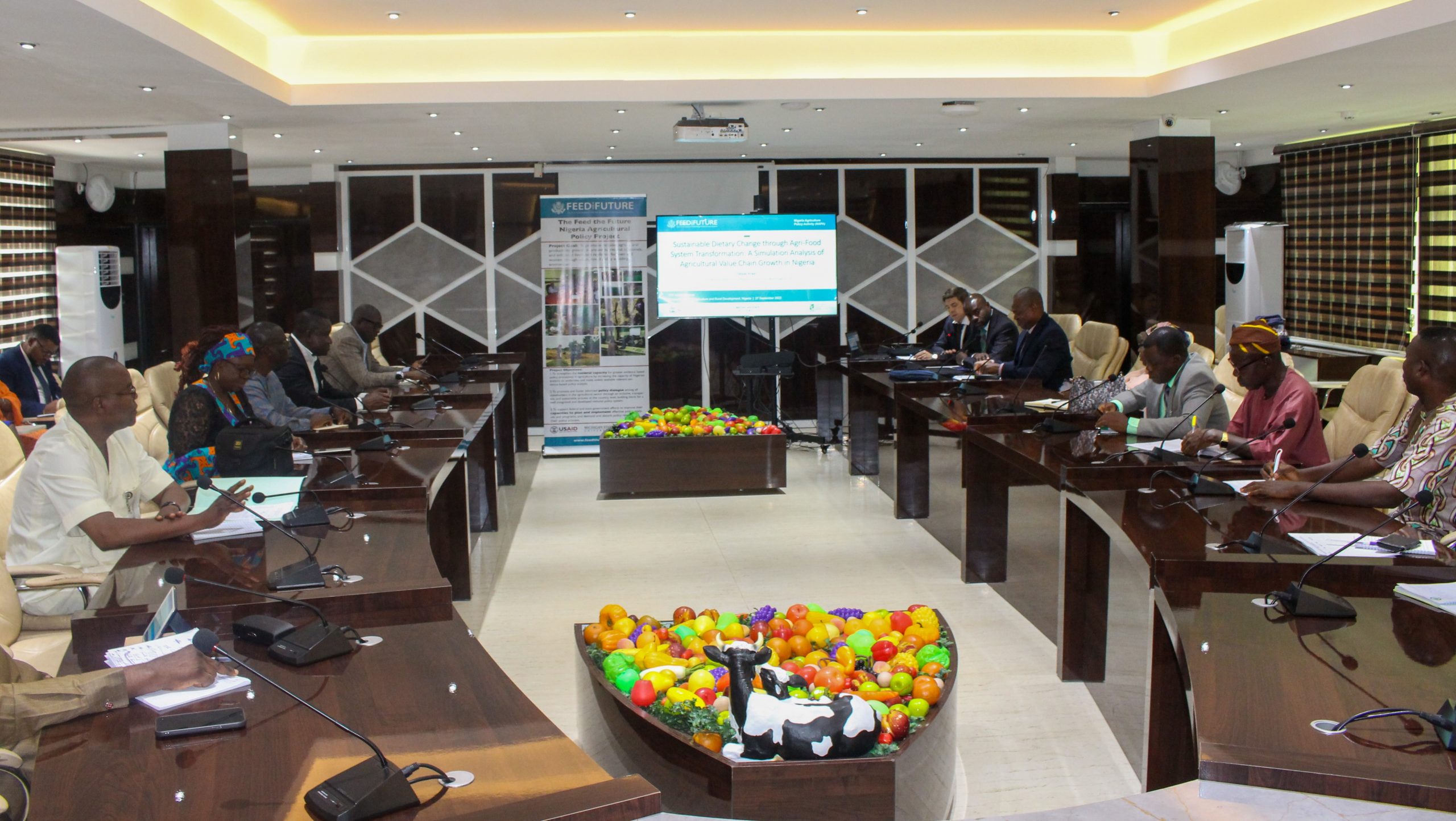
On September 27, the International Food Policy Research Institute (IFPRI) facilitated a policy seminar under the USAID Feed the Future National Agricultural Policy Activity at the Federal Ministry of Agriculture and Rural Development (FMARD). IFPRI brought together key policymakers from FMARD to present new research findings on sustainable dietary change through agri-food system transformation. The findings are expected to inform and support the implementation of Nigeria’s new agriculture policy, the National Agriculture Technology and Innovation Policy (NATIP).
USAID designed the Agricultural Policy Activity to address the need for policy research and capacity building and to equip Nigerian institutions to respond effectively and promptly to the increasing capacity, knowledge and information needs of FMARD. It is implemented by the International Food Policy Research Institute (IFPRI) and Michigan State University (MSU). To address these policy needs, IFPRI Nigeria facilitates regular seminars with policymakers from FMARD to share new policy-relevant research and research-based evidence on various aspects of agri-food systems transformation and resilience to strengthen policy coherence, respond to crises, and support informed decisions for the benefit of farmers and households in Nigeria.

Photo credit: Onilogbo Omobolanle (IFPRI Nigeria)
Olivier Ecker, Senior Research Fellow, IFPRI Washington, DC presented research findings on ‘Sustainable Dietary Change through Agri-Food System Transformation’. He shared results from a simulation analysis on how different agricultural value chain growth paths affect household diets and other key development outcomes in Nigeria. The study highlighted that the patterns of agriculture growth matter in improving diet quality. Furthermore, it showed that agricultural development driven by dairy and pulse value chain growth has the greatest potential to promote healthy diets, while agricultural growth led by productivity increases in all livestock value chains has a high potential to create employment and reduce poverty.
The policymakers present included; Ibrahim Taminu, Deputy Director of Planning and Policy Coordination (Representing the Permanent Secretary); Ime Umoh, Director of Fisheries; Winnie Lai-Solarin, Director of Animal Husbandry, and various others. They appreciated the presentation and indicated that it would guide them towards implementing NATIP.

Winnie Lai-Solarin, the Director of Animal Husbandry, mentioned in her feedback that "Indeed, the dairy value chain has numerous opportunities and, if invested in, can be a huge source of job creation and improved nutrition for Nigerians”. The policymakers welcomed the findings from the presented study. They expressed more awareness of value chains that had opportunities for growth with the right policy and investments and how each value chain can contribute to the overall goal of agricultural transformation and improved diets.
Click here to read about the Launch of the National Agriculture Technology and Innovation Policy (NATIP) 2022-2027
Click here to read the full policy document.

